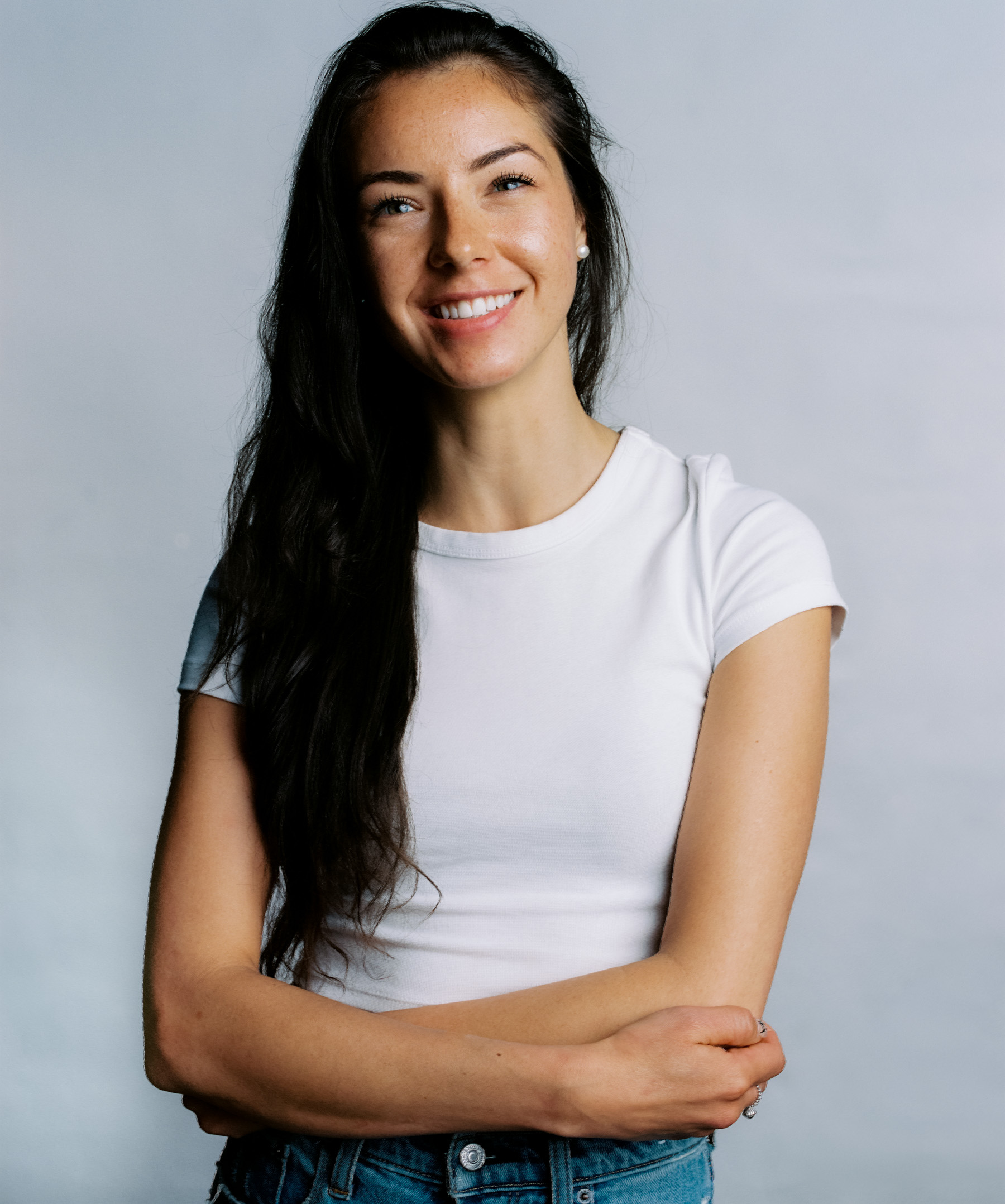At BioCanRx, we are incredibly proud of our HQP and their dedication to cancer immunotherapy research. Whether they are working on viruses in the lab or examining the socioeconomic barriers to adopting certain treatments in Canada, each one plays a unique role in strengthening our network and expertise in immunotherapy.
BioCanRx is invested in our HQP by providing them with both the training and skills they need to be leaders in academia and industry.

Tell us about yourself. Give us a brief background. Who are you? Where did you go to school and what is your association to BioCanRx?
Hello everyone! I’m Olivia, honored to have been a recipient of BioCanRx’s Summer Studentship. During this time, I worked with the Canadian Partnership Against Cancer (CPAC), focusing on cervical cancer prevention research within First Nations communities. Thanks to BioCanRx, I had the privilege to present this research at the Summit4CI in Montreal in 2022. Originally from Vancouver, B.C., I began my academic journey at Langara College and am currently completing my degree at the University of Guelph. Looking ahead, I’m excited about my future plans to pursue a Master of Public Health!
Where do you work now, and what is your position?
Currently, I work at the First Nations Information Governance Center (FNIGC) on the National Data Champion Team as a Research Analyst. Our primary objective is the implementation of the First Nations Data Governance Strategy, which aims to establish 10 Regional Information Governance Centers. These centers will empower First Nations communities across Canada to assert sovereignty over their data.
Can you tell me a little about your career path and what led you to the role you are in today?
After completing secondary school, I was enrolled in post-secondary to pursue Child Development. During my studies, my Mom was diagnosed with cervical cancer which later metastasized to her liver and spine. Shortly after her passing, my Grandpa was diagnosed with Non-Hodgkins Lymphoma. Acting as their primary caregiver profoundly impacted me and became a catalyst for my decision to return to school to pursue biochemistry, with a specific aim to contribute to cancer research. During my time with BioCanRx and CPAC, I delved into cancer research and became aware of significant data gaps in First Nations health. Today, I’m engaged in a role dedicated to building capacities aimed at addressing these gaps and filling these critical data voids. These experiences have shaped my professional path and reinforced my commitment to making meaningful contributions to cancer research and Indigenous health.
What advice do you have on developing key relationships throughout your career?
I encourage students to seize every suitable opportunity that crosses their path. Pursue scholarships and internships diligently, even if you may doubt your qualifications initially. From my own journey, I’ve found that mentors are eager to guide you, and organizations are enthusiastic about nurturing students’ growth by providing valuable skills and work experiences.
Are there any important steps you took to prepare you for this field?
Before returning to post-secondary to pursue biochemistry, I decided to take a year to use the resources available from Adult Education programs to strengthen my foundational knowledge in biology, chemistry and physics. I am grateful that I did – this decision positively impacted my academic journey and helped to ensure my success in this field.
Was there anything you wish you knew before entering the workforce?
I’ve come to realize the value of transferable skills, a lesson I wish I had learned earlier. When you are new to the workforce and reading a job posting, it’s easy to feel underqualified. However, upon closer examination of your resume, you may discover that you possess relevant skills, even if they’re not explicitly stated in the job description. It’s essential to recognize that many tasks and experiences can be reframed and applied to different roles. By taking the time to identify and articulate these transferable skills, you can confidently pursue opportunities that initially seem out of reach.
What do you enjoy most about your current role?
In my current role, I feel privileged to contribute to strengthening the well-being of First Nations communities in Canada across a spectrum of sectors, extending beyond health. Conducting research in these diverse areas has deepened my understanding of the complex landscape within which First Nations communities operate. I am grateful for the opportunity to leverage my skills and knowledge to contribute meaningfully to the advancement and empowerment of First Nations in Canada.

